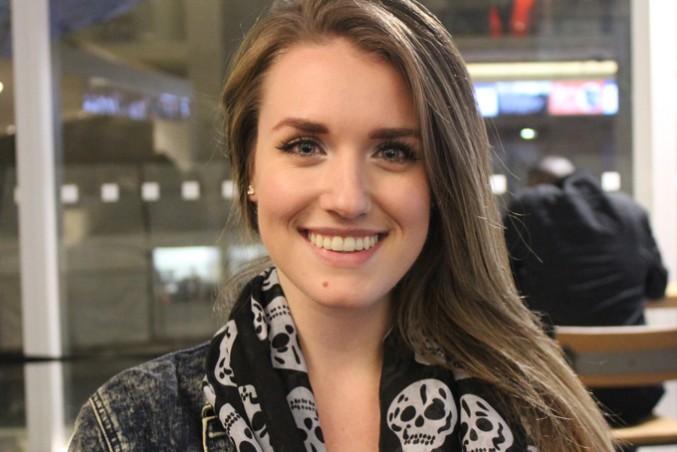By Alanna Rizza
Almost everyone is familiar with the feeling of disconnect and isolation from those around you. It is common to feel nervous when faced with a new environment, and new people.
But fourth year RTA student, Mary Gyulay, is experiencing a different struggle with nerves.
Last summer Gyulay was diagnosed with multiple sclerosis (MS), a potentially disabling disease of the brain and spinal cord.
“When you first get news like that, it becomes this thing of you feeling like no one else your age is going through that,” she said.
Since MS is more common among an older crowd, Gyulay began struggling to find people to relate to. But she has had previous experience with this.
Coming to Ryerson three years after graduating from high school, Gyulay felt even more uncomfortable due to the age gap of her classmates. She experienced difficulty connecting with them since most of the other students were fresh out of high school.
Gyulay used to feel like she couldn’t be herself when she wasn’t with someone she knew. She found it difficult to make new relationships.
“I didn’t think I could be interesting to people or come out of my comfort zone on my own,” she said.
But Gyulay said that Ryerson has provided her with an environment to find herself as well as a career path in directing and editing.
Unfortunately just when she became satisfied with her identity and friend group, MS caused her to struggle once again. But through support groups such as the MS Society of Canada, Gyulay realized that there were many people her age that have been diagnosed.
“There are probably quite a few people here on campus that are battling MS,” she said.
Gyulay mentioned that she learned that there was another girl in one of her classes who was diagnosed just 6 months after her. Before she graduates, Gyulay is now considering starting up a support group on campus for people affected by MS and other such diseases.
“I think there’s always room for more with that. Especially in university, a lot of people are away from home and having that support [from] people who understand exactly what you’re going through [does] help.”
Gyulay has also found a positive aspect of her diagnosis. She is able to use her passion for directing and editing with her fourth year thesis project—a short film about MS titled “Viable.”
She feels in control of her situation by using film as a way to depict what it’s like to live with MS. This has been a big step for her with her struggle of finding connections with others.
“I feel that by making [this] film we’re creating a circle where people can understand a little better about what MS is, especially in younger people,” she said.
“Now instead of closing myself off I’m opening up my experience.”
The goal of “Viable” is to spread awareness and educate people on what it is like to live with MS, especially younger people with the disease. Gyulay and her team want people to understand that MS doesn’t just affect older people.
She recounts her first semester after being diagnosed. Not only was she dealing with school work, but also recovering from a relapse.
“I went blind in my right eye, and [then] they try to recover that as much as they can so I went on steroid treatments.”
She was experiencing inflammation of her optic nerve and through treatment her sight returned, but not fully. She is taking medication every day to prevent other nerve deterioration.
But this isn’t stopping Gyulay from pursuing her goal and doing what she loves.
“My project is taking over my life,” she said, laughing. “It’s all I think about.”
Receiving support from people in the film industry, Gyulay and her team hope to enter “Viable” into film festivals such as TIFF and Sundance. Even though she doesn’t want to get her hopes up, she knows it’s worth a shot. “We want it to be way bigger than Ryerson,” she said.
But what is really giving Gyulay support and motivation is her team and cast of the film.
“That just moved me so much, that there are people around me that are helping me make this [film], that believe in this project and believe in raising awareness for this disease.”










Leave a Reply